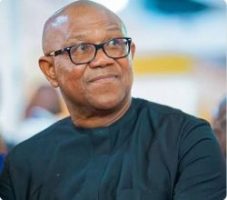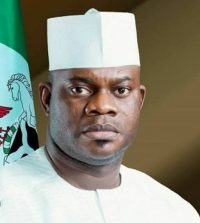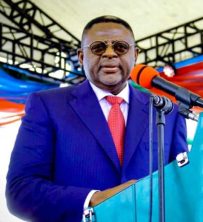Labour Party, LP, presidential candidate in the February 25, 2023, poll, Mr. Peter Obi, has decried the lack of electricity in country, saying Nigeria was too endowed to be a nation of generators and trapped in darkness.
Obi on his X on Wednesday, said: “It is rather distressing that the total installed capacity for Nigeria, a country of more than 200 million people and about 40 million small businesses, is a mere 13,000 Megawatts.
“Worse still, only about 3,500mws are available for homes and businesses from the grid and sometimes it goes as low as 2,500mw. Clearly, this is unacceptable.
“We can contrast the available supply of electricity with competitor countries in Africa like Egypt and South Africa with respective populations of approximately 112m and 59.6m people supplying about 60,000mw and 58,000 respectively.
“This difference in energy wattage has massive implications for human development and economic growth.
“Nigeria today has the world’s lowest per capita electricity wattage in the world, interestingly lower than those of most of our West African neighbours.
READ ALSO: 60th Venice Biennale: Obaseki showcases global potential of contemporary Nigeria art
“It is really sad that whereas our energy demand is above 200,000mws, we have only 13,000mw installed capacity and can only deliver regularly less than 4,000mw.
“After my consultations with experts in the sector, I have realised that the crisis of power supply in Nigeria relates to two major sectors: (1) generation, and (2) transmission and distribution.
“The major challenges of the generation sector are the lack of a regular supply of gas arising from the failure of the government in the last eight years to provide adequate gas infrastructure facilities, weak commercial availability of gas for power and failure to control the restiveness of angry youths leading to vandalism.
“It is worrisome that for more than eight years, we could not resolve the infrastructural bottlenecks that constrain the supply of gas to power plants, despite billions spent from CBN for legacy gas debts.
“On the transmission and distribution side, the last eight years have witnessed an embarrassing failure to overcome the deterioration of networks and transmission and distribution networks and invest in modern technologies like SCADA, leading to poor coverage, lack of effective coordination between TCN and discos, leading to load rejection and inability to generate public trust for policy reform on tariff and leading to low private sector investments.
“If we had a good project manager, we would have massively increased generation, transmission and distribution capacity and enhanced policy coherence that would have crowded private sector investment in to a degree that would have sustained rapid growth of the grid.
READ ALSO: Ijaw youths urge Tinubu to ignore media attacks on Tantita contract
“The problem is that the government has not exercised the required political will to appoint the right kind of leadership that understands the problems of the sector and has the singular dedication and competence to create quick wins in the short term and transformation in the medium to long term.
“I suggest that the Federal Government immediately constitutes a technical task force of real professionals without political consideration to present a diagnosis of the crisis of the sector and to get to work to correct such simple slippages like incessant fire outbreaks that lead to perennial system collapse, drastically improve coordination and coherence between TCN and discos so that there will be no load rejection, and breathe down on all operators to deliver on their technical responsibilities.
“This will rapidly improve power availability in the short term while the government develops clarity to articulate an integrated national electricity policy and a practical implementation roadmap that harmonises national and subnational electricity reform efforts to ensure rapid and expansive delivery of reliable, adequate, and affordable electricity.
“We are too endowed to be a nation of generators and to be trapped in darkness.
“Power remains critical to economic growth in the New Nigeria to which we remain committed,” he added.






